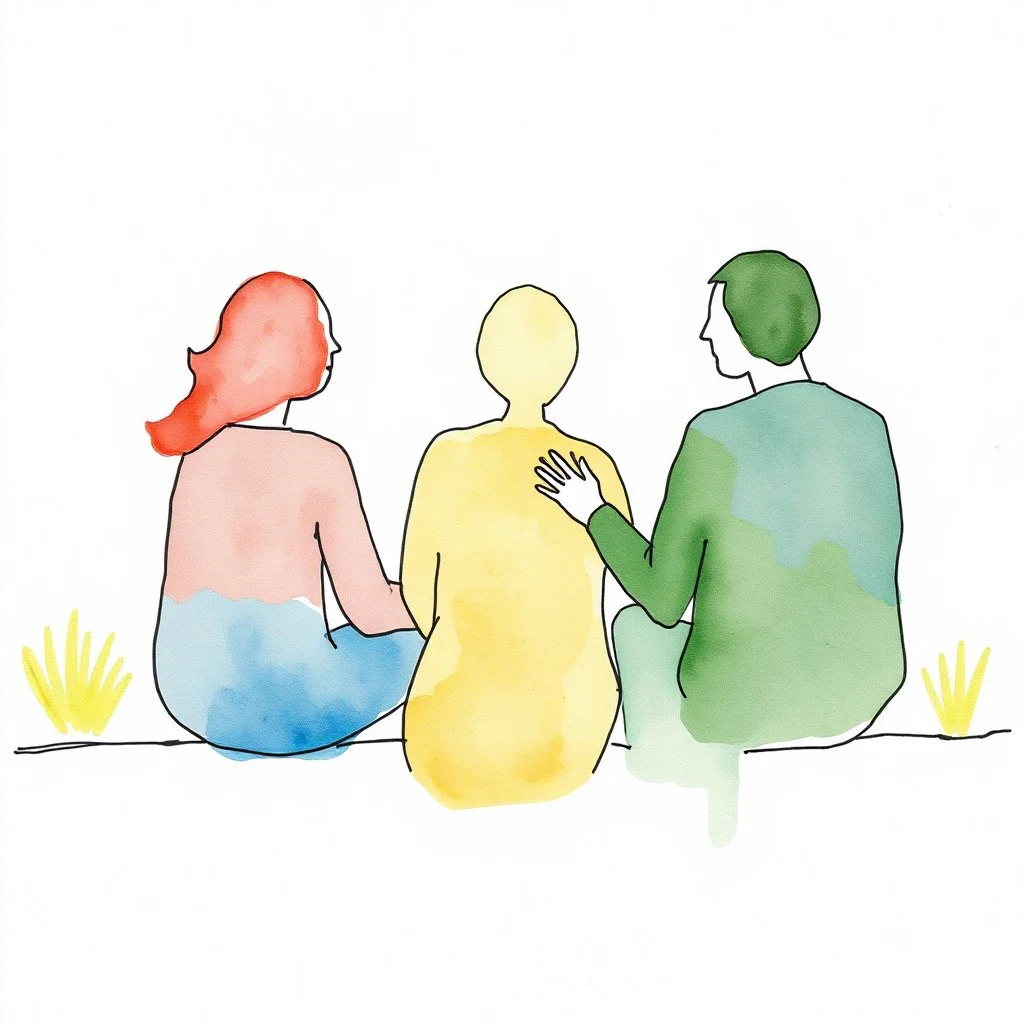against darkness
One day when I was 22, an angry man pulled into a parking space near me and yelled out his car window that I was trash, that I should not be allowed to drive because I could not park properly. He called me a bitch. He was so angry he was spitting. At that point in life I was not yet afraid. I got out of my car and went to the window of his truck. You must be struggling I said. To speak to someone like that, a complete stranger, you must be in real pain. Can I hug you? And the man broke down in tears. He apologized and said he'd just had the most upsetting day. That someone was sick, that someone else had hurt him. He apologized. He cautioned me against hugging men I didn’t know. Back in my car, I trembled at what I'd done.
You don't have to believe in God to believe in love. I'm no longer religious in any conventional sense but religion’s best values still enliven me. I grew up in a deeply Lutheran household and absorbed lots of biblical lore, including a lot of battle metaphors. In Paul’s Letter to the Ephesians, in one famous verse he talks about faith as a struggle. I prefer the King James version here for its pomp and poetic force: “For we wrestle not against flesh and blood, but against principalities, against powers, against the rulers of the darkness of this world, against spiritual wickedness in high places.” It is easy to read this as about an apocalyptic battle to come, or about devils in our midst. The claim of “wickedness in high places” is certainly a contemporary refrain. But I prefer to read the passage as about the struggle against indifference. What is “wickedness” if not the stubborn refusal to see other people’s experiences as real? What is “darkness” if not intentionally switching off the light of connectedness with others?
In Hinduism, some teachers talk about satyagraha, which translates more or less to “truth force.” The term was coined by Mahatma Gandhi in the early twentieth century, and for him took the form of nonviolent protest against injustice. Gandhi said that satyagraha “is to violence and therefore to all tyranny and injustice, what light is to darkness.” I take this to mean that to wrestle against the forces of darkness is to imagine, imagine with force, something else. It is to claim and reclaim as many times as necessary the belief that love matters, that we are in this together, that love is a real thing. Love is a force that has force.
This is why Trump reacted so spitefully to Bishop Mariann Budde’s sermon at the inauguration. She called for mercy, for love, for responsibility to others.
In the name of our God, I ask you to have mercy upon the people in our country. We’re scared now. The people who pick our crops and clean our office buildings, who labor in poultry farms and meatpacking plants, who wash the dishes after we eat in restaurants and work the night shifts in hospitals. They may not be citizens or have the proper documentation, but the vast majority of immigrants are not criminals. They pay taxes, and are good neighbors. They are faithful members of our churches and mosques, synagogues, gurdwara, and temples. I ask you to have mercy, Mr. President, on those in our communities whose children fear that their parents will be taken away, and that you help those who are fleeing war zones and persecution in their own lands to find compassion and welcome here.
I like to think of faith as the stubborn insistence that other people matter, that care matters, that community matters. It's believing this in the face of an avalanche of voices saying otherwise. You can have faith whether you are religious or not. Faith is not something that happens to you. It is an orientation toward life that you choose.
This realization, in ways too mysterious for me to fathom, gives me comfort in these times. To say faith is a stepping into darkness has a double resonance. First, faith is a step into the unknown, with the belief that the future can be better than the present. But it is also to step into the darkness itself, into the dreadful place where people do not love or value one another, the place from which Trump called Bishop Budde’s plea for care “nasty in tone.”
To have faith is to believe that things can be different without obvious reasons for that conviction. Most people think having faith means believing in God, and it can, of course, mean this. But having faith is also believing in love itself, in its force and power. The force of this faith is why Bishop Budde’s sermon is being played on repeat in viral form. The truth has power. And the truth is that love really matters, that is really does have the power to expose narcissism and unmask evil. To love loudly is itself an action, an act of love, a real and powerful force against the darkness.
One of the most powerful responses to Trump's mandate for despair is just this: Love anyway. I mean, why not love? We've been taught that love is dangerous—but its power lies in its truth force. Look at what power it had for Bishop Budde. She grasped the opening she was given and it shone like a star, didn't it? Love is the best medicine we have against the disease.
January 23, 2025
